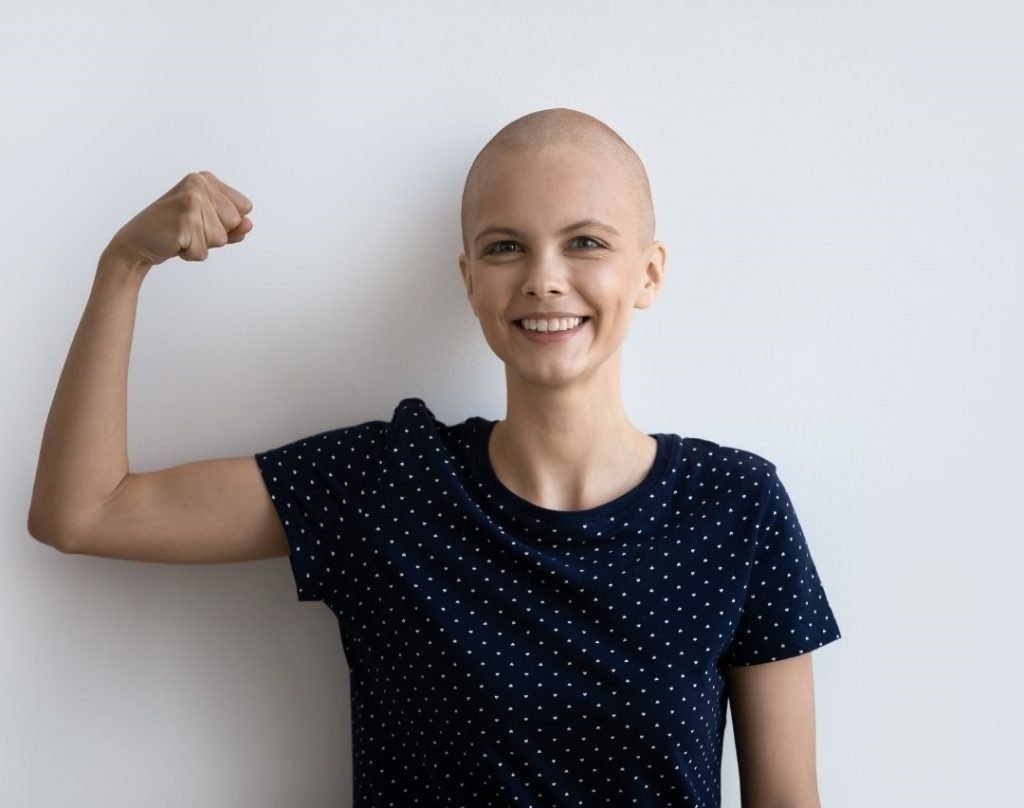Four rounds of chemotherapy over 3 months …and this was after cancer had already eaten away 13 kg of her body!
After 6+ months of cancer, cancer scans, cancer appointments, cancer treatment, and pushing through the full cancer experience, physically, mentally, emotionally, Sarah * was keen to just get back to a normal life.
But a normal life for her was 12-hour shifts driving a truck! On top of cancer, no wonder she was exhausted when James met her.
Despite all of the challenges and the fact she was still struggling with high levels of fatigue and pain, she had managed to return back to work and was driving 3 days per week. BUT she was only barely holding on. With physical exhaustion and body aches, she was sleeping every chance she got. Days off were 24-hour recovery sessions, rather than enjoying any sense of “work-life balance.”
Despite this, she was happy to be back at work. But sustainability was questionable.
Then fate stepped in.
A global pandemic.
With a viral pandemic smashing the world, and cancer having smashed Sarah’s immune system, her Oncologist recommended yet another medically imperative break from work. Anxiety increased and Sarah was scared to leave the house. Things were looking down.
Fortunately for Sarah, the Recovery Specialist on her Income Protection claim had the insight to make the referral to our Work Conditioning Program.
Sarah, living in Western Australia, was referred to our Melbourne Exercise Physiologist, James Danos.
How was this self-professed coffee aficionado on the other side of the country, who has probably spent more time riding his bike than riding in trucks (let alone had cancer!), going to help her?
They met over Zoom and James explained who he was:
An exercise enthusiast with a science-based education, and experience using telehealth. James explained his experience in helping cancer patients (and others) who suffer from fatigue and chronic pain to improve their health and fitness and get back to a normal life.
Sarah was sold.
Given her unconventional work schedule, James was required to think outside of the box. Somewhere he prefers thinking.
He needed to help her build tolerance to cope with her previous work routine of 12 hours a day, for 7 consecutive days, with 7 days off.
What’s more, he needed to craft a program that could be delivered remotely, completely via Zoom.
James began with morning activity sessions to get the most out of their time together before the afternoon fatigue kicked in. He provided much-needed education around activity pacing to help her organise, manage and survive the day without feeling exhausted by the end of it.
As her tolerance to activity increased and her fatigue decreased, the sessions were moved towards the end of the day. A tactical move by James, in order to replicate the physical demands of a long day at work. Sarah was also required to be active on consecutive days, mimicking the demands of consecutive days at work, building up from 3 days in a row to exercise on a daily basis.
By the time that Sarah had finished her 12-week program with James, her confidence in her work had increased by 300%, her fitness doubled and her social life nearly tripled! Plus, she was certified by her GP to return to her full-time hours. How’s that for help from a Melbourne coffee aficionado!
Thanks James for another successful outcome, and for proving that Zoom programs can be just as effective as face to face interventions for cancer recovery!

A note on Cancer, Exercise Physiology and Telehealth
Cancer survivors are one of the biggest cohorts of clients that we work with as exercise physiologists, so it’s fair to say that we know a thing or two about the challenges that can follow cancer therapy…
After acute treatment, such as chemo, radiation, or surgical removal of the cancerous cells, many individuals are left to deal with the physical and emotional consequences. But the aftermath can be a roller coaster ride in itself! The process of returning to life and work following treatment can be limited by factors such as pain, fatigue, psychological disorders and immuno- compromised states. Many individuals are forced to take time off from work, which of course has a host of negative consequences of its own. (Here’s why we support our clients towards making a speedy return to work).
For individuals who are fortunate enough to hold a life insurance or income protection policy, the right support, from the right professional, can be transformational during this time.
In our recent blog post , we talked about the value of exercise for cancer treatment, as well as recovery. The COSA recommendations strongly advocate for exercise therapy not only after, but during treatment, to facilitate a smoother recovery and even improve cancer treatment effectiveness.
This is, of course, where we come in.
There are always barriers, particularly important for those with existing health conditions, and those on immuno-compromising medications, as many cancer survivors are. Living in remote areas can also be a barrier to getting the right support. But it doesn’t have to be.
How lucky are we in this day and age that Telehealth exists! And how lucky for people like Sarah that the team at Specialised Health are well versed in the application of Telehealth exercise programs.
*Name changed for privacy.
Let’s connect, find us:
Author: Yolanda van Vugt and Biara Webster
